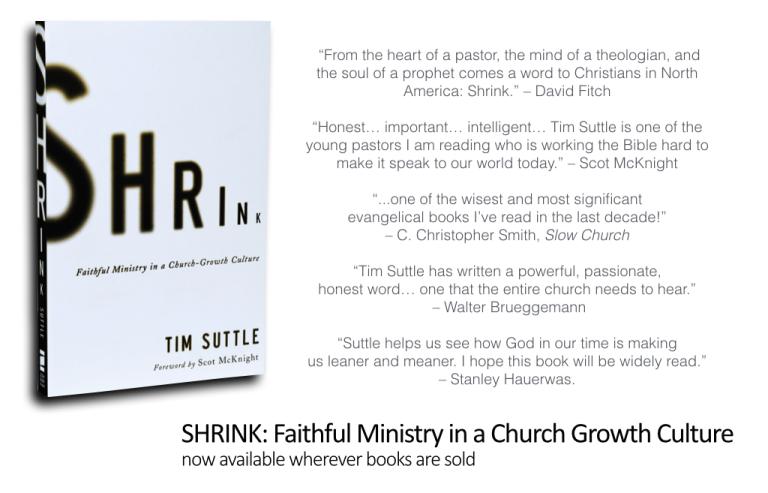 Our society is fascinated with success.
Our society is fascinated with success.
The American story is about bigger, better, higher, stronger, and faster. Don’t talk about limits, talk about results; talk about the latest models, strategies, and techniques that will lead us to greatness. This kind of leadership is pragmatic. It asks only one question: “What works?”
That’s the American story.
That’s not the Christian story.
The Christian story says the first will be last; the greatest will be the servant; if you lose your life for others, you’ll find yourself more alive than you could’ve imagined. The Christian story is about faithfulness, not success.
Why then does nearly every church leadership book I’ve ever read, and any talk on ministry leadership I’ve ever listened to have the same underlying assumption as the culture of success? If 90% of pastors serve in small congregations of under 200 people, why then does the vast majority of our leadership advice come from megachurch pastor’s and leaders of huge organizations? If Jesus is about faithfulness, then why is the Christian leadership conversation completely pragmatic from top to bottom?
Maybe it’s time for us to recognize what nearly all of our most celebrated contemporary church leaders have failed to teach us: that the church does not belong to us; it is we who belong to the church. We are not making the church; the church is making us. We cannot determine the church’s success, its mission, or its outcomes. Success is not the goal of ministry, faithfulness is.
In Shrink, I’m trying to draw a distinction between the cultural story of success, and the Christian story of faithfulness. I’m attempting to foment a movement away from pragmatic, results-oriented church leadership that focuses the spotlight on anything that works to make our ministry bigger, better, higher, stronger, and faster. The Christian leader is called not primarily to be effective, but to be faithful and to practice leadership in the way of Jesus no matter what the perceived results may be.
It’s a tough sell, I know: “How to Shrink Your Church,” was the original proposed title for this book, but we were all convinced nobody would buy it. Plus it didn’t convey the “good news” aspect of this story… the indescribable freedom and security that comes through trusting God. Faithfulness has a power that we have not even begun to explore. Hypnotized by a culture of success, church and ministry leaders have all but lost the ability to relish what an amazing thing it is to be a part of something small, something ordinary. Jesus seemed to know that the little things, the ordinary things… this is where all the power to change the world subsists.
I have become convinced that the Christian leader’s first job is to become a good and virtuous human being and a good and virtuous leader, and then to leave questions of growth and perceived success in the hands of God. Sometimes all God requires of the leader is to do the small things faithfully for the rest of his or her life. How many of us have the tools to even imagine that, much less carry that off?
Shrink is about how we can do that, and why we must.
If you are ready to stop counting, and comparing; ready to quit trying to get your church to realize your own ministry dreams; ready to stop pushing your leaderships to grow without limits, then you need to read this book.
















